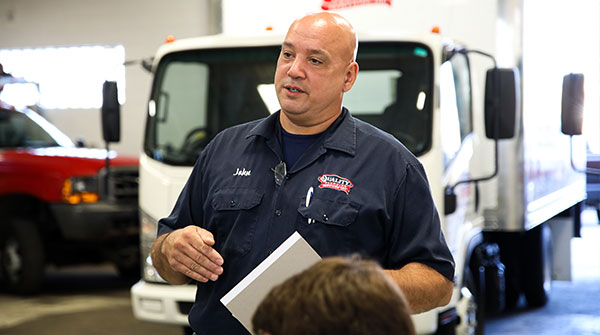847-259-0200
CLICK-TO-CALL FOR LIVE RESPONSEOur technicians are ready to help! Get in touch with us by calling the number or filling out the form below
If you are in need of a reliable and professional 24 hour plumber in Chicago or the northwest suburbs, Quality Plumbing Services is just a simple phone call away from fixing the problem. Our expert plumbers will be there fast and fully prepared to handle all your plumbing needs. If you have a plumbing problem of any kind from power rodding to boilers, we will arrange a plumbing technician for you right away. We offer Quality plumbing services to Chicagoland homeowners as well as commercial plumbing service to businesses, institutions, and industrial. See our complete service area for your town on the map. Our licensed plumbers are your friendly neighborhood plumbers. From sinks, bathtubs, and toilets, to video inspection and sewer repairs. At Quality Plumbing Services Inc. we believe that a job done right the first time, gives you peace of mind and leaves you worry free! Customer satisfaction is our ultimate goal and we strive to provide you with many years of Quality service as your own personal plumber. At Quality Plumbing Services we live by our motto — Quality People. Quality Products. Quality Service.

Quality People. Quality Products. Quality Service.

Award-Winning Service

24/7 Emergency Services

Top-Notch Workmanship

Clean-Cut, Professional Technicians

High-Quality Workmanship

Fast, Same-Day Repairs

Hands down the best service appointment experience I've had in Chicago. Dan and Kevin came out, fixed my leaky faucet hookup, tightened the faucet I tried to install myself (hence the need to call these guys), and had it all done within a half hour. Talk about efficient and professional.

Cannot say enough good things about the staff: friendly, professional, knowledgeable, skilled, receptive to questions and willing to take time to explain everything.

I was without shower and toilet,but despite a heavy schedule, Quality came day because of my 86 year old mother. Amazing compassion! Dan and Kevin arrrived quickly, assessed the issues and worked VERY HARD to repair the problem. Three hours later...success! The beautiful part: these man saved me $4000 in additional work! Unconditional RAVE reviews for Dan and Kevin!! THANK YOU!!!

I highly recommend this company! Scott was awesome! He explained everything in great detail, found solutions to problems that two other plumbers could not find and was truly a professional.

Brad was excellent! Such a fine young man who was outstandingly professional. He took the time to explain all that was going on and the options available. I want to commend you for hiring this most professional man.

I wanted to take a moment to express my sincere appreciation. I came home on a Saturday afternoon to a mess. Nobody was home..black water in the upstairs tub. A bowling ball like water balloon in my first floor wall. Called you guys in a panic..spoke with Wally who got John Schiavone out to my home within an hour. He figured out the problem. Fixed it and talked me down off my ledge. Extremely helpful and professional. I will not hesitate to call you all for any further issues. John earned Quality Plumbing a customer today.






Describe the incentive to browse the video galley, maybe there is a new video they need to see.
Our plumbing technicians are ready to help! Get in touch with us by calling the number or filling out the form below

Let our highly trained staff of plumbing technicians diagnose your water heating system to give you the best option for reliable, energy saving hot water in your home.

Quality Plumbing Services Inc. offers complete drain cleaning and power rodding service for all of your home and business needs.

Our professional plumbing technicians will analyze all factors and provide you with options and advice on what type of sump pump best suits your home.

Our expert plumbers will be there fast and fully prepared to handle all your plumbing needs. From toilets to boilers, we will arrange a plumbing technician for you right away.